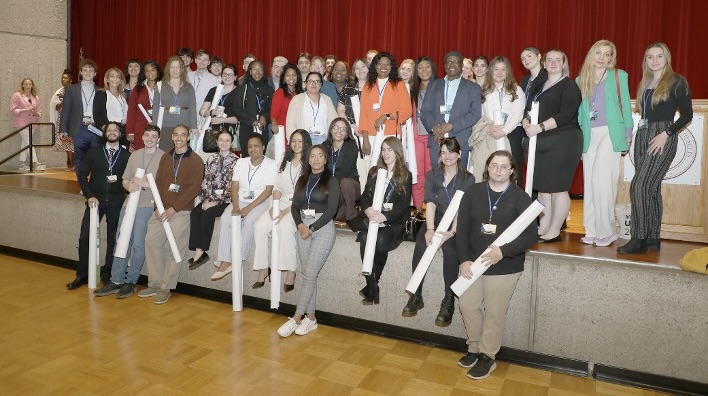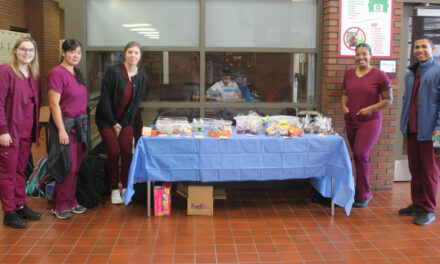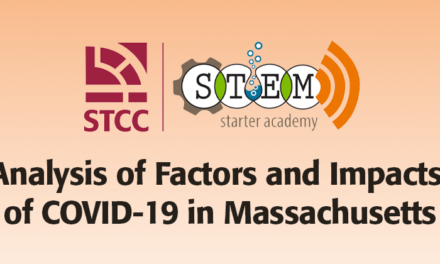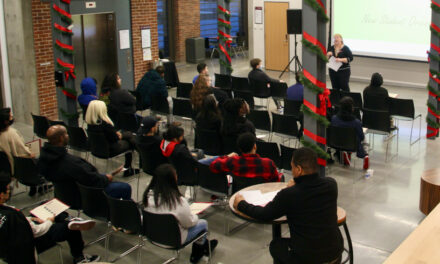Good day, readers! My name is Angelica Heichelbech, and I have been a student at Springfield Technical Community College for the past few years. I am a Biology-Transfer student with the aim of pursuing studies in Neuroscience. I’m fascinated by the mechanisms through which the human brain controls function and how these processes influence consciousness. I come from a background where pursuing higher education was not always a possibility, so I am incredibly grateful to be doing so today.
What if the tiniest organisms on Earth held the power to speed up, or slow down climate change? As part of the Cell Biology course at STCC, my classmates and I had the opportunity to present our class research poster project at this year’s UMass Undergraduate Research Conference (URC) at Amherst. This event was a valuable learning opportunity, providing us with the chance to engage with peers in related fields, network with faculty and students from various institutions, and push ourselves to develop our public speaking skills. I saw this opportunity not only as a privilege but also as a chance to sharpen my critical thinking and refine my understanding of the scientific research process.
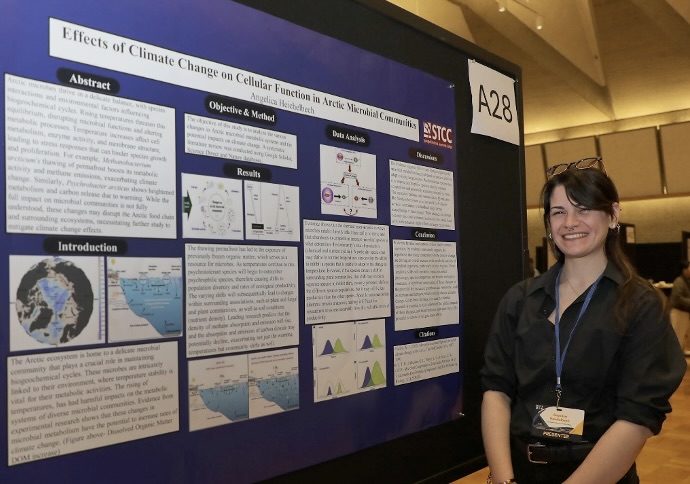
For my research project, I explored the effects of climate change on the metabolic processes of polar microbial organisms. Through this research, I learned that rising global temperatures are accelerating the metabolic activity of these microbes, especially those in Arctic environments. These shifts in metabolism can drive changes in microbial physiology and species dynamics, potentially disrupting entire ecosystems and contributing to increased greenhouse gas emissions further exacerbating climate change. It became clear to me that continued research is vital to understanding the global impact of these changes, and that innovative approaches such as microbial engineering or targeted ecosystem management may offer future strategies to mitigate some of the environmental consequences.
Conducting this research challenged me to manage my time effectively and dive deep into the language and structure of scientific literature. I developed my ability to evaluate sources critically, synthesize information, and translate complex findings into accessible content for my poster presentation. I also improved my skills in designing visuals that clearly communicate data, something I hadn’t fully appreciated the importance of before this project.
Presenting at the UMass URC was overwhelming in the best way. Being surrounded by so many passionate, knowledgeable individuals was both humbling and inspiring. It was empowering to be part of an environment where ideas flowed freely, and it gave me a glimpse of the kind of collaborative academic community I hope to continue engaging with in the future. I’m incredibly grateful to have represented STCC at this event and for the encouragement and guidance of Professor Reena Randhir throughout the process. Participating in the URC deepened my passion for biology and reaffirmed my interest in pursuing further research experiences. I would highly recommend that future students embrace this opportunity if it comes their way, it’s an experience that challenges you, teaches you, and stays with you.

